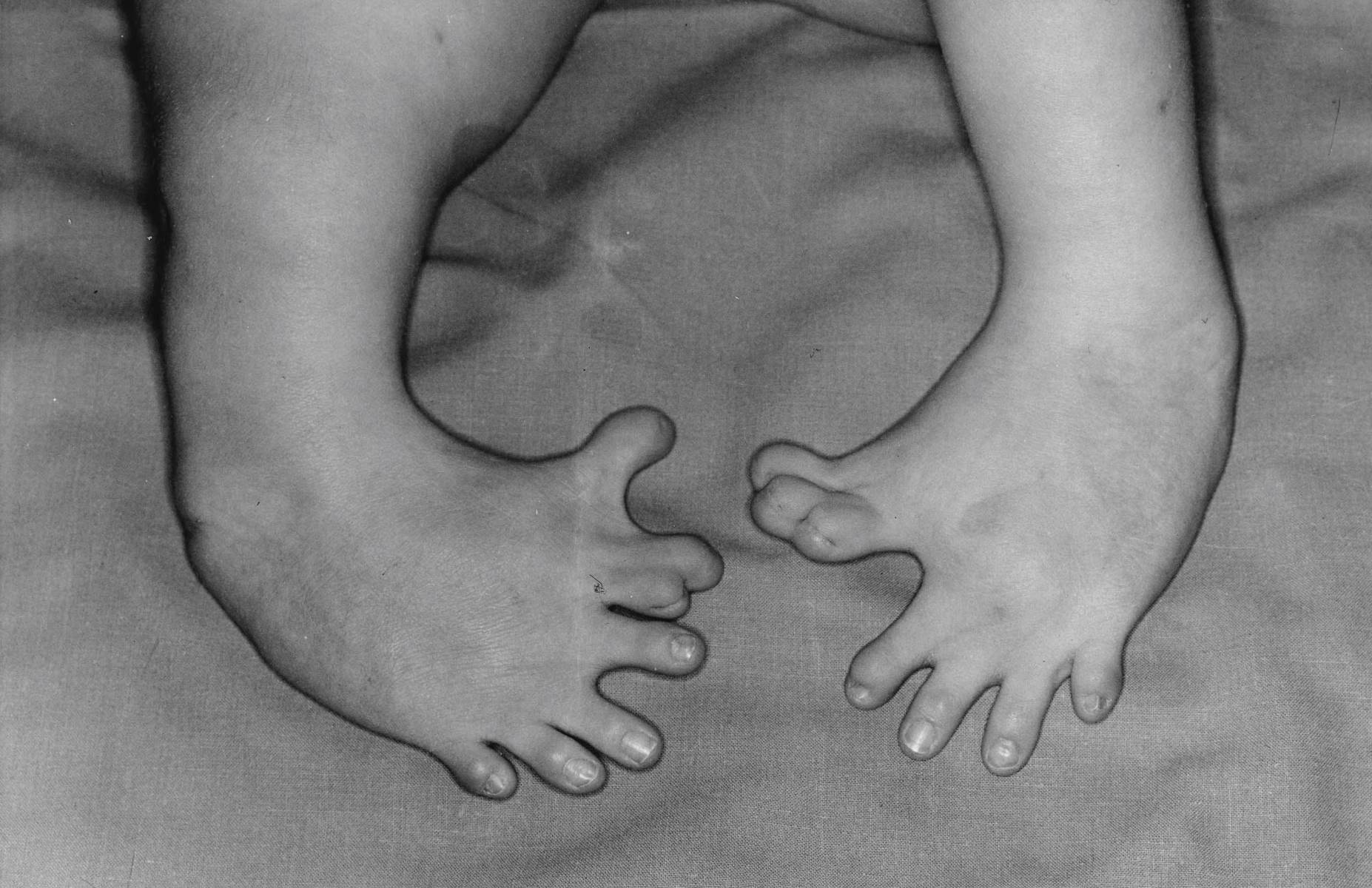
Sensitivity is a trait that can shape how we experience the world. Ever wondered why some people cry during movies while others stay dry-eyed? Or why certain sounds drive you up the wall? Sensitivity isn't just about emotions; it affects our senses, reactions, and even relationships. Highly sensitive people often notice details others miss, feel emotions deeply, and may need more downtime to recharge. This blog post dives into 40 intriguing facts about sensitivity, shedding light on its many facets. Whether you identify as sensitive or know someone who does, these facts will help you understand this complex trait better. Buckle up for a journey into the world of sensitivity!
Key Takeaways:
- Embracing sensitivity can be a strength, not a weakness. Highly sensitive people are creative and empathetic, and they thrive in calm, supportive environments.
- Sensitivity impacts daily life, health, children, culture, technology, personal growth, and society. It shapes decision-making, relationships, and community dynamics.
Understanding Sensitivity
Sensitivity is a complex and multifaceted trait. It can influence how people perceive the world, interact with others, and manage their emotions. Here are some intriguing facts about sensitivity that might surprise you.
-
Sensitivity is Not a Weakness: Many people mistakenly believe that being sensitive means being weak. In reality, sensitivity can be a strength, allowing individuals to be more empathetic and understanding.
-
Highly Sensitive People (HSPs): About 15-20% of the population are considered highly sensitive. These individuals process sensory data more deeply and are often more aware of subtleties in their environment.
-
Sensitivity and Creativity: Highly sensitive people are often more creative. Their heightened awareness and emotional depth can lead to greater artistic expression and innovation.
-
Sensitivity in Animals: Sensitivity is not exclusive to humans. Many animals, including dogs and cats, can exhibit signs of sensitivity, reacting strongly to changes in their environment or the emotions of their owners.
-
Sensitivity and Empathy: There is a strong link between sensitivity and empathy. Sensitive individuals are often more attuned to the feelings and needs of others, making them excellent caregivers and friends.
Sensitivity in Daily Life
Sensitivity can affect various aspects of daily life, from work to personal relationships. Here are some ways sensitivity manifests in everyday situations.
-
Work Environment: Sensitive people may find noisy or chaotic work environments overwhelming. They often thrive in calm, organized settings where they can focus without constant interruptions.
-
Relationships: In relationships, sensitive individuals may need more reassurance and open communication. They are often very loyal and deeply invested in their connections with others.
-
Decision Making: Sensitivity can influence decision-making processes. Sensitive people may take longer to make decisions because they consider all possible outcomes and the feelings of those involved.
-
Conflict Resolution: Sensitive individuals may avoid conflict, preferring to resolve issues through peaceful and diplomatic means. They often seek harmony and mutual understanding.
-
Self-Care: Self-care is crucial for sensitive people. They may need more time to recharge and decompress after stressful situations or intense social interactions.
Sensitivity and Health
Sensitivity can also have implications for physical and mental health. Here are some facts about how sensitivity interacts with overall well-being.
-
Stress Response: Sensitive individuals may have a heightened stress response. They can become easily overwhelmed by stressful situations, which can impact their physical health.
-
Mental Health: Sensitivity is linked to various mental health conditions, such as anxiety and depression. However, with proper support and coping strategies, sensitive individuals can manage these challenges effectively.
-
Physical Sensations: Highly sensitive people may experience physical sensations more intensely. This can include heightened sensitivity to pain, temperature, and other sensory stimuli.
-
Sleep Patterns: Sensitivity can affect sleep patterns. Sensitive individuals may have trouble falling asleep or staying asleep due to their heightened awareness of their surroundings.
-
Diet and Nutrition: Diet can play a role in managing sensitivity. Some sensitive individuals may benefit from specific diets that reduce inflammation and promote overall well-being.
Sensitivity in Children
Children can also exhibit signs of sensitivity. Understanding and supporting sensitive children can help them thrive. Here are some facts about sensitivity in kids.
-
Early Signs: Sensitivity can be observed in children from a young age. Signs include being easily startled, having strong reactions to sensory stimuli, and showing deep empathy for others.
-
Parenting Sensitive Children: Parenting a sensitive child requires patience and understanding. Providing a stable, nurturing environment can help sensitive children feel secure and supported.
-
School Environment: Sensitive children may struggle in traditional school settings. They may benefit from smaller class sizes, individualized attention, and a calm learning environment.
-
Social Interactions: Sensitive children may find social interactions challenging. They may need guidance in developing social skills and managing their emotions in group settings.
-
Emotional Expression: Encouraging sensitive children to express their emotions in healthy ways is important. This can include activities like journaling, art, or talking about their feelings.
Sensitivity and Culture
Cultural factors can influence how sensitivity is perceived and expressed. Here are some ways culture interacts with sensitivity.
-
Cultural Acceptance: In some cultures, sensitivity is valued and respected. In others, it may be seen as a weakness or something to be overcome.
-
Gender Differences: Cultural norms around gender can affect how sensitivity is expressed. For example, men may feel pressure to hide their sensitivity due to societal expectations.
-
Communication Styles: Sensitivity can influence communication styles. In cultures that value directness, sensitive individuals may struggle with blunt or harsh communication.
-
Art and Literature: Sensitivity is often celebrated in art and literature. Many famous artists, writers, and musicians are known for their deep emotional sensitivity.
-
Cultural Practices: Some cultural practices, such as meditation or mindfulness, can help sensitive individuals manage their emotions and reduce stress.
Sensitivity and Technology
Technology can both help and hinder sensitive individuals. Here are some facts about how sensitivity interacts with the digital world.
-
Social Media: Social media can be overwhelming for sensitive individuals. They may be more affected by negative comments or the constant influx of information.
-
Digital Detox: Taking breaks from technology can be beneficial for sensitive people. A digital detox can help them recharge and reduce feelings of overwhelm.
-
Online Communities: Online communities can provide support for sensitive individuals. These spaces can offer a sense of belonging and understanding.
-
Screen Time: Excessive screen time can negatively impact sensitive individuals. Limiting screen time and engaging in offline activities can improve well-being.
-
Technology Tools: There are technology tools designed to help sensitive individuals manage stress and anxiety. Apps for meditation, relaxation, and mindfulness can be particularly helpful.
Sensitivity and Personal Growth
Sensitivity can be a catalyst for personal growth and self-discovery. Here are some ways sensitivity can contribute to personal development.
-
Self-Awareness: Sensitivity can lead to greater self-awareness. Sensitive individuals often have a deep understanding of their emotions and motivations.
-
Emotional Intelligence: Sensitivity is closely linked to emotional intelligence. This includes the ability to recognize, understand, and manage one's own emotions and the emotions of others.
-
Resilience: Despite their heightened sensitivity, many sensitive individuals develop strong resilience. They learn to navigate challenges and bounce back from adversity.
-
Mindfulness: Practicing mindfulness can help sensitive individuals manage their emotions and reduce stress. Mindfulness techniques can include meditation, deep breathing, and grounding exercises.
-
Personal Boundaries: Setting personal boundaries is important for sensitive individuals. This can help them protect their energy and avoid feeling overwhelmed.
Sensitivity and Society
Sensitivity can play a significant role in shaping society. Here are some ways sensitivity impacts social dynamics and community life.
-
Advocacy: Sensitive individuals often become advocates for social justice and change. Their empathy and awareness drive them to fight for the rights of others.
-
Community Building: Sensitivity can contribute to strong community bonds. Sensitive individuals often work to create inclusive, supportive environments.
-
Leadership: Sensitive leaders can be highly effective. Their empathy and understanding can inspire and motivate others, fostering a positive and collaborative work culture.
-
Volunteering: Many sensitive individuals are drawn to volunteer work. Their desire to help others and make a difference drives them to contribute to their communities.
-
Cultural Sensitivity: Sensitivity to cultural differences can promote inclusivity and respect. Understanding and appreciating diverse perspectives can lead to a more harmonious society.
Final Thoughts on Sensitivity
Understanding sensitivity can change how we interact with others. Recognizing that some people feel emotions more deeply helps build empathy and stronger relationships. Sensitive individuals often notice details others miss, making them great listeners and observers. They might need more time to recharge after social events, so giving them space shows respect.
Sensitivity isn't a weakness; it's a different way of experiencing the world. Embracing this trait can lead to more meaningful connections and a better understanding of human emotions. Whether you're sensitive or know someone who is, appreciating this quality can enrich your life.
Remember, sensitivity brings unique strengths. By valuing these traits, we create a more compassionate and understanding community. So next time you meet someone who seems more in tune with their feelings, consider it a gift. Sensitivity adds depth to our interactions and makes the world a kinder place.
Frequently Asked Questions
Was this page helpful?
Our commitment to delivering trustworthy and engaging content is at the heart of what we do. Each fact on our site is contributed by real users like you, bringing a wealth of diverse insights and information. To ensure the highest standards of accuracy and reliability, our dedicated editors meticulously review each submission. This process guarantees that the facts we share are not only fascinating but also credible. Trust in our commitment to quality and authenticity as you explore and learn with us.


